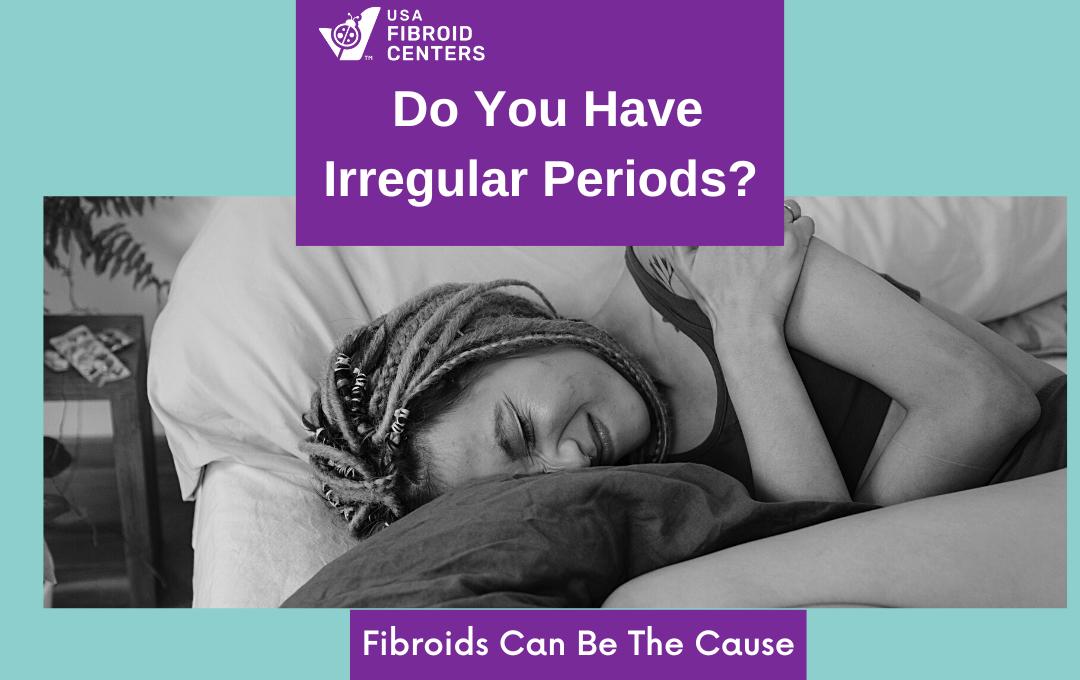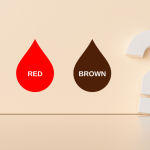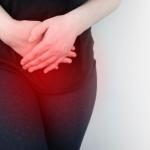
What is a Menstrual Period?
Most women of childbearing years have a menstrual period. During the menstrual cycle, there are four phases: menstruation, follicular phase, ovulation, and luteal phase. A woman’s chances of becoming pregnant can be increased by knowing when she is most likely to conceive in her menstrual cycle.
During the monthly period, the ovaries, uterus, and hormone production change naturally as part of the female reproductive system. The menstrual cycle controls the release of estrogen and progesterone and the timing of eggs.
A woman’s menstrual cycle involves the regular discharge of blood and mucosa from her uterus. The levels of hormones fluctuate during this period. A woman’s monthly period indicates that there hasn’t been a pregnancy when progesterone levels rise and she has her period.
The first menstrual period is called menarche and occurs around age 12. At first, the young woman’s period may not come every month in a regular pattern. Periods usually occur about every 4 weeks. Because the first menstrual period is called menarche, it means it’s the time in a girl’s life when menstruation first begins. During the menstrual cycle, menstruation may be irregular and unpredictable, known as female puberty.
Why is a Menstrual Cycle Called a Period?
A menstrual cycle begins with the first day of your period, continues through its cycle, and starts over again when the next period begins. Throughout menstruation, your body produces hormones to prepare for pregnancy. Hormone levels can change during menstruation, causing menstrual symptoms. A woman’s cycle often changes as she ages. It takes a woman between 24 and 38 days to go through a normal cycle.
It’s possible a woman can have bleeding between menstrual periods. If it happens regularly, it may be due to fibroids.
Understanding What is a Menstrual Period
A woman’s menstruation, often called her “period,” is her monthly bleeding. During menstruation, your body discards the monthly buildup of the uterine lining through the small opening in your cervix. Menstrual blood and tissue flow from your uterus to your vaginal canal.
What is a Menstrual Period?
The lining of your uterus sheds during a normal menstrual cycle. The cycle prepares your body for pregnancy as it is part of your reproductive system. Periods, menses, and cycles are also names for it. A woman may experience occasional bleeding between menstrual periods, but if it happens regularly, you should consult a fibroid specialist.
The egg travels through one of the fallopian tubes to reach the uterus. When an egg is fertilized by a sperm cell and attached to the uterine wall, pregnancy occurs. It is important to know that if an egg doesn’t fertilize, it breaks apart, hormone levels drop, and the thickened lining of the uterus is shed through the vaginal canal.
How Fibroids Affect Menstrual Cycles
Uterine fibroids put pressure on the uterine lining, causing more bleeding than usual. There may be a problem with the uterus’s contractions, which prevents the uterus from stopping bleeding. As a result of fibroids, blood vessels may grow, which leads to heavier or irregular periods and spotting between periods.
It is possible that you will experience more bleeding during your period if you have fibroids. If you have fibroids, you may also notice that your menstrual cramps are becoming more intense.
You may be concerned if you have excessive blood flow from the uterus between menstrual periods and wonder if you have fibroids. Excessive bleeding between menstrual cycles is a good reason to consult with a fibroid specialist at USA Fibroid Centers to learn more about your condition and treatment options.
How Common is Having a Period With Light Bleeding?
Generally, a period lasts about four to five days, whereas if it is less than that, it is considered to be spotting. The blood flow during a period is usually sufficient to soak a pad. Blood during menstruation is generally red, while blood during spotting is often brown or dark red.
As part of the menstrual cycle, spotting occurs through light bleeding. Several factors can cause it, including birth control pills, pregnancy, and a number of health concerns. It is possible for a woman not to need any menstrual products if they only spot infrequently or lightly.
Light periods can be caused by pregnancy, hormones, weight changes, stress, or other factors. It is possible to have lighter than normal period blood that is pink, red, or brownish in color. In some cases, cramps and period pain may accompany it. The menstrual cycle fluctuates for most women.
What is Heavy Bleeding?
Women who menstruate often experience heavy menstrual bleeding. A prolonged menstrual period is bleeding lasting longer than seven days. If heavy period bleeding disrupts your life, you may want to discuss your treatment options with a fibroid specialist.
Heavy periods cause you to lose more blood than usual. If you bleed a lot, you may need to change your tampon or pad every hour for several hours back-to-back. Blood clots can pass through a body the size of a quarter or larger. It is not normal to have heavy menstrual bleeding that interferes with your daily life.
There can be reasons for heavy periods that aren’t caused by underlying diseases. Among the examples are individual variations, hormonal imbalances, medication side effects, and using an IUD. An almost constant need to change pads or tampons for several consecutive hours is classified as a “heavy period.”
Signs and Symptoms of Light Vs. Heavy Periods
It can be hard to tell the difference between normal and excessive blood loss during menstruation because menstruation varies from person to person. You should be aware that high levels of stress can affect your hormones. You may experience irregular menstruation as a result. If you are stressed, you may experience irregular, shorter, or lighter periods. Because every woman is different, their monthly cycles will not be the same, including light and heavy periods.
Light Periods:
The flow of a person’s menstrual cycle can be altered by different factors, resulting in an unusually light period. There is usually no need to worry about lighter periods than usual. Body weight, exercise, or stress can contribute to lighter periods.
Heavy Periods:
In some women, estrogen levels are high, and progesterone levels are low. A thickening of the uterine lining can result from this. Women can experience heavier blood flow and larger blood clots during menstruation when their uterine lining sheds.
Women with uterine fibroids generally experience heavy or prolonged menstrual bleeding, abnormal uterine bleeding, resultant anemia, blood clots, pelvic pain, infertility, and recurrent pregnancy loss.
How Are Fibroids Treated?
Fibroids can be treated with uterine fibroid embolization, which can shrink fibroids.
Uterine Fibroid Embolization (UFE)
Uterine fibroid embolization can avoid hysterectomy and myomectomy with minimally invasive surgery. In comparison to major surgery, this procedure does not require a hospital stay and requires a shorter recovery time. Furthermore, this procedure reduces the size of fibroid tumors by blocking blood supply.
How USA Fibroid Centers Help
Our network is the nation’s leading uterine fibroid embolization (UFE) treatment provider. We have helped women live fibroid-free without surgery by relieving their fibroid symptoms for good. With USA Fibroid Centers, you’ll receive compassionate care from our fibroid specialists.
Fibroid Treatment with Light Period
It is common for people to experience varying menstrual flows from month to month, and some months are lighter than others. Sometimes, it is possible to have a light period due to stress or weight loss. In addition, it could indicate pregnancy or a hormone-related condition.
No matter what kind of period you have, UFE is the preferred treatment option to remove fibroids. It’s important to know that menstrual cycles can be affected by fibroids.
Discuss Your Options with a Fibroid Specialist
You may think that the only way to deal with painful fibroid symptoms is to undergo uterine fibroid removal surgery as soon as you discover you have them. With a minimally invasive fibroid treatment option, it is possible to get back to your normal life without many of the side effects of surgery. Uterine fibroid embolization (UFE) is a non-surgical and quick procedure that can shrink fibroids, eliminate symptoms, and give you back control.
Using uterine fibroid embolization (UFE), you can treat uterine fibroids and alleviate the symptoms of your fibroids in an outpatient setting, with minimally invasive procedures.
Contact USA Fibroid Centers for Fibroid Treatment
A minimally invasive procedure called uterine fibroid embolization (UFE) treats fibroid tumors. Women suffering from fibroid-related symptoms can benefit from UFE. If you have fibroids, USA Fibroid Centers can help you find relief from fibroids. Uterine Fibroid Embolization (UFE) is considered one of the best nonsurgical treatments. A uterine fibroid embolization has less pain and a quicker recovery time than a hysterectomy or myomectomy.
You can contact USA Fibroid Centers at 855.615.2555 or complete our online scheduling form to have someone call you. If you prefer telemedicine, you can schedule a virtual doctor visit. Let’s connect to see if you are a candidate for UFE.



